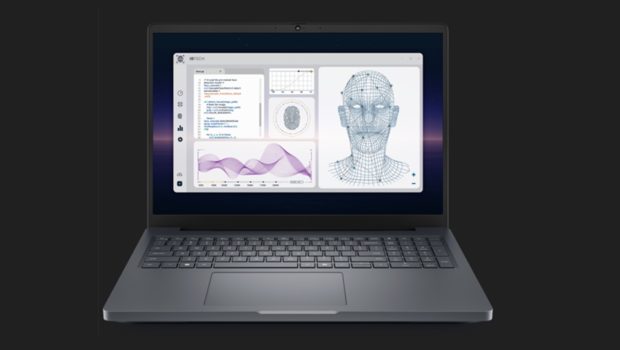Reimagining AI: Discrete NPU Power with Dell Pro Max
Artificial intelligence has already transformed the way we work and solve problems. The next challenge is to make that intelligence faster, more secure and more accessible to the professionals who rely on it every day.
This will be helpful for healthcare professionals in rural clinics, for example – where MRI scans are taken to reveal life-threatening conditions, but the cloud connection lags and every second is pivotal. Or for financial analysts, who are racing against the clock to detect fraud before millions of dollars vanish.
For years, these scenarios meant compromise: Waiting for cloud processing or risking critical data exposure. However, now consumers don’t have to choose – as enterprise-level AI performance can fit inside a laptop.
In today’s hybrid world of data and decisions, speed and control are non-negotiable. Engineers, researchers and analysts demand both high performance and data privacy, a balance between compute power, near real-time responsiveness and local control.
That is why Dell Technologies has announced the launch of Dell Pro Max 16 Plus featuring the Qualcomm® AI 100 PC Inference Card (a discrete NPU). Under the hood is a custom dual-NPU architecture, with two AI-100 NPUs on a single card that has 64GB of dedicated AI memory, built for sustained, high-fidelity FP16 inferencing. This notebook delivers datacentre-class on-device inferencing where work happens. The first mobile workstation with an enterprise-grade discrete NPU,* bringing datacentre-level performance, fidelity and consistency to a device that can be carried.
This leap forward means the devices can run complex, large-scale AI models directly on a single device, untethered from the cloud. It doesn’t just improve efficiency, it redefines what’s possible for security, privacy and innovation.
From cloud dependence to cloud-scale independence
Over the last decade, GPUs accelerated AI’s rise by parallelising massive data sets and speeding up training. But inferencing – the real-time execution of trained models -demands something different. It calls for sustained performance, predictable latency and uncompromising accuracy.
That’s where the Qualcomm AI 100 PC Inference Card steps in and changes the game. This discrete NPU, purpose-built for inferencing at scale, lets large AI models run with up to approximately 120 billion parameters directly on a single laptop. It delivers the full accuracy of FP16 precision.
The discrete NPU transforms how performance, latency, security and mobility coexist. This isn’t an add-on, it’s a new class of processor designed to handle modern AI workloads across industries.
The benefits of this localised power are immediate and transformative:
Zero Cloud Dependency and Latency: Achieve real-time results without cloud roundtrips that can add hundreds of milliseconds. For time-critical workloads, that can mean missed opportunities or lost precision. By removing those constraints, users can work anywhere, even in disconnected or air-gapped environments, without sacrificing performance.
Airtight Security and Privacy: Keep sensitive data on-device, always. In regulated industries like healthcare, finance and government, data sovereignty is non-negotiable. The Dell Pro Max 16 Plus with the Qualcomm AI 100 PC Inference Card keeps every inference private and under the users control by processing workloads entirely on-device.
Predictable Costs: Replace recurring and unpredictable cloud inferencing costs and token-based usage pricing with a one-time hardware investment that delivers consistent, scalable inferencing power.
True Portability: The “edge server in a backpack” concept is now real. High-fidelity AI performance can now move with companies’ teams – enabling consistent results whether they’re diagnosing in a clinic, inspecting in a factory or deploying in the field.
Flexibility
The Dell Pro Max 16 Plus with the Qualcomm AI 100 PC Inference Card is built for flexibility, supporting both Windows and Linux environments, giving teams the flexibility to work in their preferred development stacks and toolchains. When running Windows, it integrates seamlessly with Dell’s ecosystem enablers for AI PCs, allowing IT administrators to manage security policies and lifecycle updates with the same precision as any corporate workstation.
Healthcare: Real-Time Diagnostics
Clinicians in mobile or rural clinics can analyse medical images directly on-device, generating instant insights while keeping patient data compliant with privacy regulations. The Qualcomm AI 100 PC Inference Card enables fast inferencing on high-resolution MRI or CT scans, even when connectivity is limited.
Finance, Legal and Government: Confidential AI
Analysts and policy teams can run predictive models, fraud detection and document classification in secure or air-gapped environments. Legal teams can transcribe sensitive depositions and automatically redact personally identifiable information (PII) in a completely secure environment, on-device. The result: faster decisions, total data control.
Engineering and Research: Accelerated Development
AI developers can benchmark and validate models locally, using the Dell Pro Max with the Qualcomm AI 100 Inference Card to fine-tune parameters and measure latency without waiting on cloud queues. In robotics and computer vision, engineers can process live sensor feeds and enable real-time decision loops — essential for autonomous systems, smart factories and field maintenance.
In every scenario, the benefit is the same: AI that performs immediately, securely and at scale – wherever innovation happens.
The right tool for the Job: Discrete NPU vs. GPU and integrated NPU
Not all processors handle AI workloads the same way. The Dell Pro Max with the Qualcomm AI 100 PC Inference Card offers a specialised advantage for modern AI inferencing.
Discrete NPU vs. Integrated NPU: Integrated NPUs found in standard laptops accelerate OS functions like background blur in video calls, but are limited to small models due to memory and performance constraints. An enterprise-grade discrete NPU operates on another level. With 32 AI cores and 64GB of dedicated on-card memory, it runs large, complex models that are far beyond the scope of integrated solutions.
Discrete NPU vs. GPU: GPUs are ideal for graphics, simulation and training AI models. The advantage of a discrete NPU is that it’s architecturally designed for sustained inferencing and is more power-efficient when running sustained workloads. In practice, that means advanced AI models can run consistently and reliably, with lower power draw and less heat than traditional accelerators.







